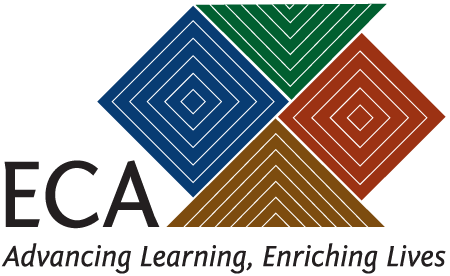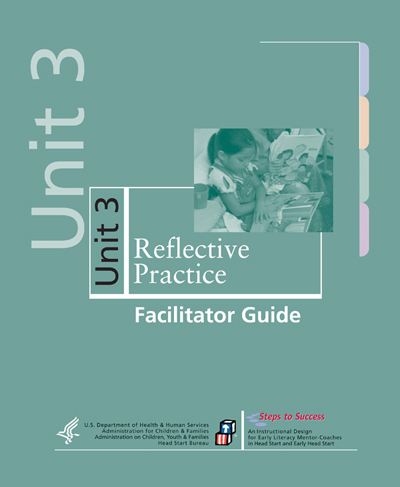A key factor in influencing the overall quality of an Early Childhood Education program, and ultimately child outcomes, is the quality of its educators. Children exposed to early educators with high pedagogical standards exhibit better Pre-K math skills and higher levels of child cognitive and language development than their counterparts who do not have high-quality early education.
To meet the demands for quality teaching specific to kindergarten readiness, effective early educators must be immersed in knowledge about language and literacy and numeracy development and know what to teach and how to teach developmentally and effectively. Teachers must understand what individual children bring to learning, their cultural traditions, and how to build upon prior knowledge in a way that engages children’s understanding in meaningful literacy practices. They need to know how to monitor children’s growth and progress and to create respectful and reciprocal relationships with families.
The Mentor-Coach Model is an evidence-based model proven to be effective at changing the trajectory of children’s success in school through better pedagogy. The Steps to Success (STS) program created initially by our firm, for the national Office of Head Start is an evidence-based mentor-coaching instructional design model. STS has six years of solid evaluation data to back it effectiveness in improving classroom language and literacy practices and learning outcomes for children. The data, available through the national Early Reading First (ERF) Program, the University of Massachusetts and the Northern Michigan Community Action Agency, shows that in controlled conditions where treatment groups received the Steps to Success (STS) intervention, changes in teacher skills and dispositions and changes in student language and literacy outcomes were significantly better for the treatment group of teachers and children than the control group.
Effective mentor-coaching requires organizational support, including resources to strengthen and sustain relationships; sanctioned time for Mentor Coachs to work with teachers; ongoing incentives and resources for MCs; written agreements for MCs and teachers to work together; and access to technology so that MCs and teachers can maintain a dialogue in between face-to-face sessions. In the Mentor-Coach model that we use in our work, teachers are supported by MCs. The MCs are themselves supported by Coach Advisors. MCs participate in core training and work with teachers in laboratory settings where MCs will apply their coaching skills to support teachers in creating high quality learning environments for all children, in using intentional research based curriculum and using assessment data to inform practice. Teachers and MCs work together to define what a practice should look like, when it should be implemented and the degree to which the practice is implemented as planned.
We would love to hear about your coaching experiences—What has been effective and what has been challenging about using or working with an instructional or mentor coach?
A key factor in influencing the overall quality of an ECE program, and ultimately child outcomes, is the quality of its educators. Children exposed to early educators with high pedagogical standards exhibit better Pre-K math skills and higher levels of child cognitive and language development than their counterparts who do not have high-quality early education.
To meet the demands for quality teaching specific to kindergarten readiness, effective early educators must be immersed in knowledge about language and literacy and numeracy development and know what to teach and how to teach developmentally and effectively.Teachers must understand what individual children bring to learning, their cultural traditions, and how to build upon prior knowledge in a way that engages children’s understanding in meaningful literacy practices. They need to know how to monitor children’s growth and progress and to create respectful and reciprocal relationships with families.
The Mentor-Coach Model is an evidence-based model proven to be effective at changing the trajectory of children’s success in school through better pedagogy. The Steps to Success (STS) program created initially by our firm, for the national Office of Head Start is an evidence-based mentor-coaching instructional design model. STS has six years of solid evaluation data to back it effectiveness in improving classroom language and literacy practices and learning outcomes for children. The data, available through the national Early Reading First (ERF) Program, the University of Massachusetts and the Northern Michigan Community Action Agency, shows that in controlled conditions where treatment groups received the Steps to Success (STS) intervention, changes in teacher skills and dispositions and changes in student language and literacy outcomes were significantly better for the treatment group of teachers and children than the control group.
Effective mentor-coaching requires organizational support, including resources to strengthen and sustain relationships; sanctioned time for MCs to work with teachers; ongoing incentives and resources for MCs; written agreements for MCs and teachers to work together; and access to technology so that MCs and teachers can maintain a dialogue in between face-to-face sessions. In the Mentor-Coach model that we use in our work, teachers are supported by MCs. The MCs are themselves supported by Coach Advisors. MCs participate in core training and work with teachers in laboratory settings where MCs will apply their coaching skills to support teachers in creating high quality learning environments for all children, in using intentional research based curriculum and using assessment data to inform practice. Teachers and MCs work together to define what a practice should look like, when it should be implemented and the degree to which the practice is implemented as planned.
We would love to hear about your coaching experiences—What has been effective and what has been challenging about using or working with an instructional or mentor coach?

